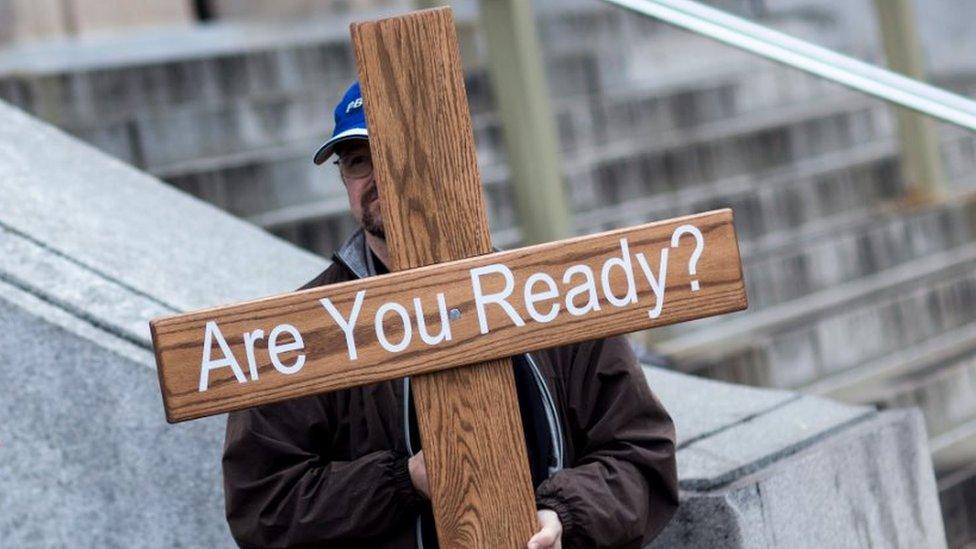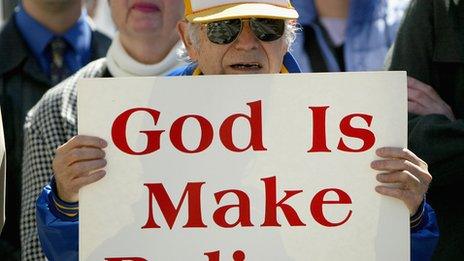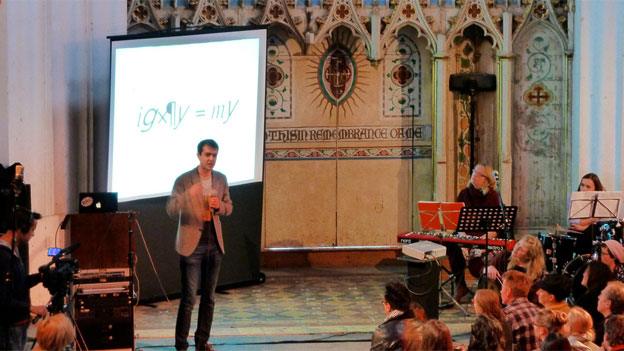Atheists believed to be less moral, says study
- Published

Those who believe in a higher being are instinctively considered more moral, a new study claims
Atheists "are broadly perceived as potentially morally depraved and dangerous" - even in secular countries.
According to a new study, some atheists even have an in-built "anti-atheist bias" when it comes to judging a person's morality.
But anti-atheist bias was strongest where there are high numbers of believers, like the United Arab Emirates, United States and India.
Only New Zealand and Finland did not exhibit a clear bias against atheists.
The study, put together by an international team and published in the journal Nature Human Behaviour, external, took into account the responses of more than 3,000 people across 13 countries and five continents.
Those who took part were asked whether an imagined person, who tortured animals as a child before becoming a teacher and then killing five homeless people, was more likely to be religious or atheist.
Across the study group, it was found people were twice as likely to believe the killer was an atheist.
Study co-author Will Gervais, a psychology professor at the University of Kentucky in Lexington, told news agency AFP: "It is striking that even atheists appear to hold the same intuitive anti-atheist bias.
"I suspect that this stems from the prevalence of deeply entrenched pro-religious norms. Even in places that are currently quite overtly secular, people still seem to intuitively hold on to the believe that religion is a moral safeguard."
- Published4 August 2014

- Published4 February 2013

- Published22 November 2016

- Published9 January 2015
